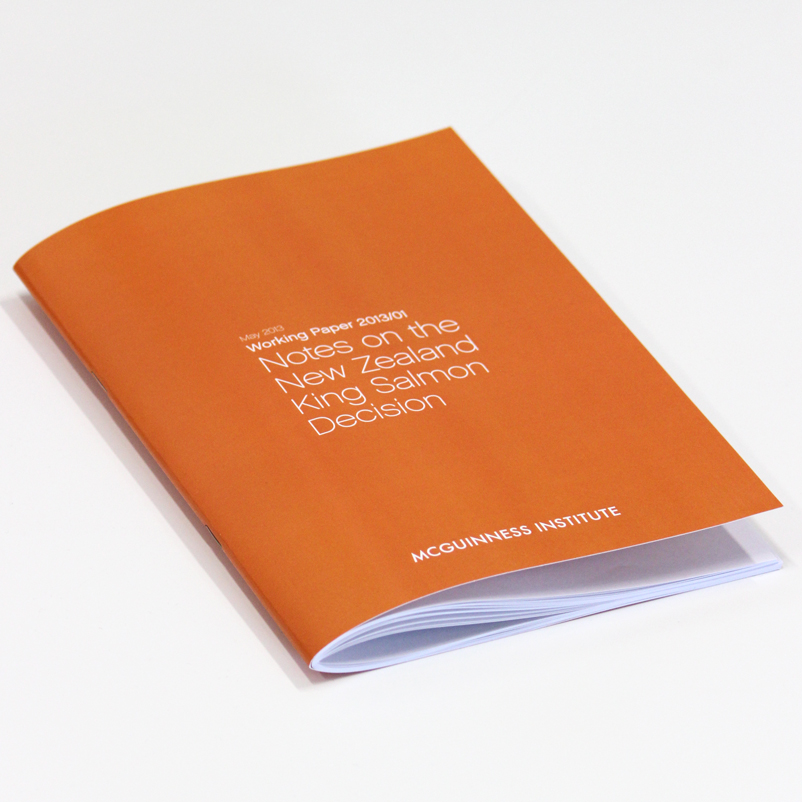MPI has just released a fact sheet on the recent unusual mortality rates in Marlborough farmed salmon. The fact sheet notes:
At the time of the 2012 event, MPI tested tissue samples from dead fish but could not find a definite cause. The Ministry concluded that there were likely to be multiple factors at play including the farm site, water temperature and flow and feed.
When the mortality event occurred earlier this year, further testing was carried out at the Animal Health Laboratory (AHL) in Wellington. MPI’s scientists developed and validated new tests and through this new work, detected the presence of two bacteria that had not been reported in New Zealand before.
One is a Rickettsia-like organism and the other, a bacterium called Tenacibaculum maritimum.
It is important to note that these two bacteria could be a factor in the fish deaths, but they are almost certainly not the whole story. Once again, MPI believes that the event has a range of causes and the bacteria could be involved in the fish deaths, in combination with other factors.
MPI advise that “while individual farmers/companies are responsible for the welfare of stock in their care, MPI is the government agency responsible for animal welfare in emergencies and for enforcing animal welfare regulations and acts. We are monitoring the salmon situation closely and working with the affected farms to prepare for the possibility of further deaths.“
Background
The Institute has a watching brief on farming of salmon, and on ocean governance more generally. In March 2013, we published Think Piece 16: New Zealand King Salmon: Was it a good decision for New Zealand? followed by Working Paper 2013/01: Notes on the New Zealand King Salmon Decision in May 2013. In March 2015 we published Report 10: One Ocean: Principles for the stewardship of a healthy and productive ocean and later this month we plan to publish a discussion paper on the establishment of a possible oceans institution.
Outstanding Questions
In regard to unusual mortality outbreaks, we are keen to learn more from MPI about the possible cause and potential short and long-term risks to the economy and the environment. This is particularly relevant given the application by New Zealand King Salmon (NZKS) to place further farms in the Marlborough Sounds area, with many submitters raising concerns over the extent additional farms might negatively impact on an already overloaded ecosystem. No doubt MPI staff are working on a more detailed report, but some immediate questions that come to mind include:
- What is the name of the company and location of the farm/s involved?
- What is the number/tonnage of fish that have died, over what time frames?
- How long are fish sick before they die?
- Where have the dead fish been buried?
- To what extent are further deaths expected – magnitude and probability – and over what time frames?
- To what extent have neighbors and the Regional Council been notified?
- Where else in the world can these two bacteria be found and what economic and environmental impact has it had in those areas?
- What level of confidence/expert advice has been relied upon that these bacteria ‘do not pose a known risk to human health’?
- How did the bacteria get to New Zealand? Could other, potentially more dangerous bacteria, come through the same pathway?
- Can New Zealand get rid of the bacteria (and if yes who pays the costs) or will the bacteria become a permanent feature of the Marlborough Sounds? If the latter, to what extent does/could this impact negatively on the region?
- Does or could this further outbreak impact on the recent decision to allow additional salmon farms to operate in the area? At what point would further outbreaks trigger a review of the decision to approve NZKS’s four new farms?
- What is the Marlborough District Council’s current governance role at present? Does this change if more farms have unusual mortality outbreaks?
- How long has the company concerned known about this latest outbreak and when were MPI notified? What can we expect from MPI going forward in regard to timely reporting?
The Kenepuru and Central Sounds Residents’ Association have raised concerns over a lack of transparency and timeliness since the 2012 outbreak. The association requested a copy of the MPI report, but were supplied one with many paragraphs blacked out. In May 2014, the Ombudsman required the ministry to provide a copy of the full report to the association. See The Marlborough Express:
Association spokesman Andrew Caddie said the Ombudsman’s decision was pleasing, despite it taking two years to get the ministry report.
The Ombudsman firmly dismissed the ministry’s contention that withholding the information was necessary to avoid prejudice to the substantial economic interests of New Zealand and he firmly endorsed the rights of citizens in a transparent, participatory democracy to have access to official information in order to participate effectively in the making and administration of laws and policies, Caddie said.
The Institute, among others, will be looking forward to reading a more comprehensive report on this outbreak, with a view to understanding the possible economic, social and ecosystem impacts.

